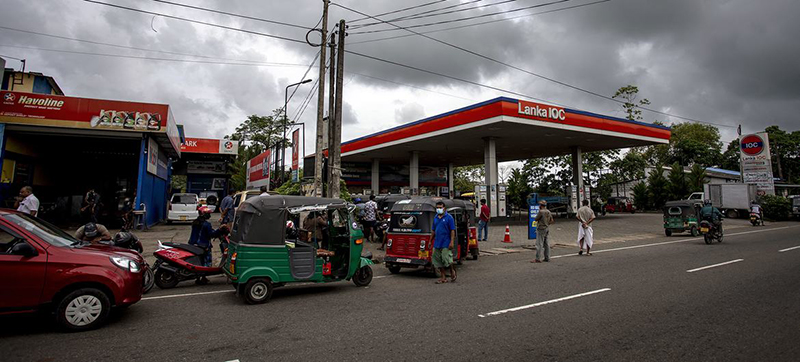 Sri Lanka
Sri Lanka Ensure peaceful and constitutional transfer of power in Sri Lanka, urges UN Resident Coordinator
New York: The head of the UN Country Team in Sri Lanka has urged senior politicians to ensure a peaceful transfer of power in line with the national Constitution, following weeks of protests that finally saw the resignation of President Gotabaya Rajapaksa on Thursday.
In a statement issued on Friday on behalf of the UN in Sri Lanka, Resident Coordinator Hanaa Singer, said that it was “imperative that the transition of power is accompanied by broad and inclusive consultation within and outside Parliament.”
According to news reports, Mr. Rajapaksa offered his resignation after fleeing the country and arriving in Singapore, having first flown to the Maldives on Wednesday after tens of thousands of protesters stormed his official residence in the capital Colombo earlier in the week.
The former president and his family have been blamed by demonstrators for failing to prevent a major economic crisis that has created acute shortages of food, fuel, medical supplies, and left the country teetering on the edge of economic ruin, having entered discussions with the International Monetary Fund (IMF) over an emergency bailout.
Mr. Rajapaksa’s resignation led to jubilant celebrations on the streets of the capital, and marked the end of nearly 20 years of rule by the powerful family.
Despite the relative calm on Friday morning, there were reportedly long queues once more for petrol.
Address root causes
In her statement, Ms. Singer recalled that Secretary-General António Guterres has highlighted the importance of addressing the root causes of the current instability and the people’s grievances.
Dialogue with all stakeholders is the best way to address the concerns of fulfil the aspirations of all Sri Lankans”, she said.
Restraint over protests
She added that the authorities now needed to “ensure that in maintaining law and order, the security forces exercise restraint and operate in strict compliance with human rights principles and standards.”
The Prime Minister Ranil Wickremesinghe – who has held that office a total of six times - was sworn in a president on a temporary basis on Friday, and Sri Lanka’s parliamentarians are due to begin the process of selecting a new president on Saturday, before taking a formal vote on 20 July.
Mr. Wickremesinghe’s residence was also occupied by protesters earlier in the week, and later his office, but he has reportedly pledged to act fast to restore the presidency in line with the Constitution, and protesters dispersed peacefully, with businesses reopening in the capital, after an overnight curfew was lifted, although soldiers controlled checkpoints around the city.
Support in the long and short term
Ms Singer, said that the United Nations stood ready to “support the Government and people of Sri Lanka, to address both immediate and long-term needs.”
Sri Lanka’s multiple crises have been exacerbated by the COVID-19 pandemic which saw the collapse of the crucial tourism industry, which provides foreign currency for imported fuel and medical supplies, and rocked by the supply chain crisis precipitated by the Ukraine war.
Some 22 per cent of the population are food insecure and in need of assistance said the World Food Programme last month, and the UN has launched a joint Humanitarian Needs and Priorities Plan, requesting more than $47 million to aid around 1.7 million of the worst impacted.
Support Our Journalism
We cannot do without you.. your contribution supports unbiased journalism
IBNS is not driven by any ism- not wokeism, not racism, not skewed secularism, not hyper right-wing or left liberal ideals, nor by any hardline religious beliefs or hyper nationalism. We want to serve you good old objective news, as they are. We do not judge or preach. We let people decide for themselves. We only try to present factual and well-sourced news.







